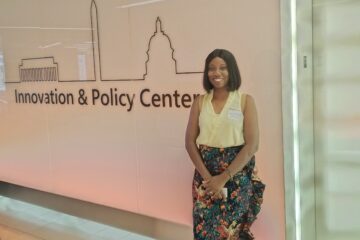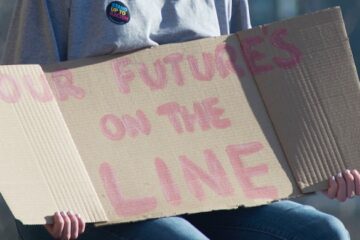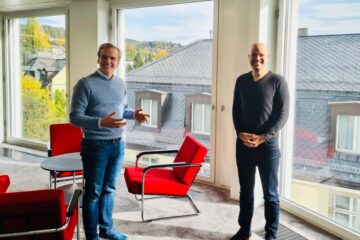A great deal of world politics is a fundamental struggle, but it is also a struggle that has to be waged intelligently.”
― Zbigniew Brzezinski
World War II marked the global revolution of the 21st century! But after the war, it became absolutely important for world leaders to devise strategies on how best to ascertain global interests, make mutually benefitting policies, adjust to political demands as well as map out appropriate tactic(s) in addressing global problems within the international system. For some reason, diplomats specifically find themselves falling into this category of leaders.
I had the opportunity of attending a summit on Globalization and Good Governance in August. In the middle of his presentation, one of the speakers posed a question that seemed quite disturbing to the docile audience. He enquired, “What is the best way to get rid of an uncompromising ally state without losing ties with it?” There was a very brief silence. Then came a deep voice from the audience, “The diplomatic way!” There was a quick laughter from the crowd. That was on a light note, but given some thought, it weighed some pounds of truth.
Strategically, diplomacy seeks to promote friendship and co-operation among individuals, cultures, groups and nations. More, it engages in activities that encourage peace, international security and sustained development within the global sphere. As a structure, the most diplomatic institution in the world is the United Nations.
I woud like to say however that:
Everyone is a diplomat of some sort. Something as simple as being polite and courteous, avoiding human conflicts or settling disputes, carefulness in dealing with others, being considerate, patient and understanding; prudence in thought and tact in speech are all symbolic of one’s innate disposition to diplomacy. But on a professional level, diplomats are skilled in managing international relations.
Professional diplomacy is an art; a method and strategy of conducting negotiation(s) between/among nations in a bid to promote peace, foster cooperation, achieve understanding among other objectives. It is even more pivotal as a development practitioner within the international environment.
Effective Leadership is Effective Diplomacy.
With my research on the operations of highly effective Diplomats, here are what I consider to be deducible traits of effective diplomats. These same specialized skillsets if acquired overtime, will position you not just as a career diplomat, but as an effective leader solving some societies most problems. I would opine that every professional working the development sector must possess copious amount of diplomatic skills to make and sustain impact:
1.GOOD KNOWLEDGE OF HISTORY AND WORLD AFFAIRS
A professional diplomat has a good acumen for world history and possesses a profound insight into the workings of the global system. A diplomat must be versed in foreign relations; therefore, the most recognizable route to a career in diplomacy is a bachelor’s and then master’s degree in a major like international relations, political science, cultural anthropology, sociology, or foreign policy. Obtaining a position as a diplomat or Foreign Service Officer is a challenging endeavor; therefore, most professionals in this field possess master’s degrees and even PhDs with majors in international relations or political science.
By virtue of studying, She/he has a touch on virtually all aspects of the society including religion, culture, politics, etc. With this, S/he is effectively able to interpret the facts bordering on world events. Like the Cosmic Philosopher, the world is the diplomat’s laboratory wherein S/he tests, verifies, analyzes issues of relevance and make sound judgments about their implications in real-time.
2. PRAGMATIC IN NEGOTIATIONS
Although the win-win principle is the goal of negotiation, a diplomat, however, seeks the national interest of the country he represents and pushes for negotiations in line with this requirement. If this is not achieved, he re-directs his strategy until there is a common ground on which both parties can safely land.
3.EXCEPTIONAL IN COMMUNICATION
For the concerned diplomat, the goal of dialogue is the attainment of understanding. When communication is employed fully, a foreign policy within the domestic and international system becomes achievable. In conflict resolution, a diplomat will employ both the dynamics for mediation and the technique of dialogue to commence a peace process. When on mission, a diplomat is efficient in handling the toughest questions with finesse and polish as well as being prudent but CLEAR on specific terms and deals. Even in the delivery of bad news, the diplomat is careful to not evoke bad feelings! He pays attention to the verbal and non-verbal “vibes” and only speaks when necessary.
4.DETAILED AND SEDULOUS
The business of diplomacy demands a high level of meticulousness. Jeff Besoz states that “If you don’t understand the details of your business, you are going to fail”. You’d be successful, if you have an eye for details as a diplomat. As it were, the principle lies in the fact that your “clients” deserve the best service.
So, the merit of being flawless in your dealings is a strong plus both to your country and the country you have business with. With experience, exposure and expeditions, diplomats merely see in clear terms the patterns within the international system.
Finally, some thinkers orate diplomacy is timely and the most effective means to fostering international development today. Others, like Machiavelli plays it as a deceptive game. To what extent are these assertions true? What qualifies a good diplomat as one in your view? Feel free to share your thoughts. Over to you!
Fidelis Bonaventure Uzoma has a Masters in Diplomacy and Strategic Studies. He is a personal growth strategist and human capital development professional with over six years of experience within the training and development sector in Nigeria. Fidelis is the Executive Director at Diplo-Age where he designs, coordinates, and manages capacity building projects, talent acceleration, career readiness, and professional development programs for start-ups, entrepreneurs living with disabilities, college graduates, corporate organizations, NGOs, and educational institutes. He is also as a founding member of Youth Aid Development Foundation (YADF), a nonprofit that provides economic empowerment opportunities, job assistance, and psycho-social support programs for at-risk youth and persons with disabilities in Africa. He currently serves as an Atlas Corps Fellow at the Obama Foundation, Washington DC, working with the International Team in designing, developing, and deploying high-impact leadership programs in Africa, Asia, and Europe.



